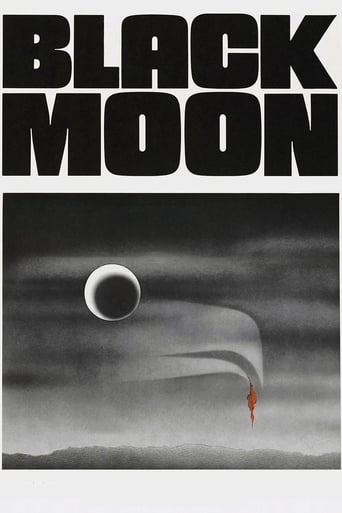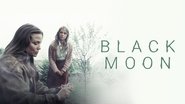tom245-32-153383
this...film...was...weird. I was working my way down a "weirdest films" list when I got to this one. After seeing the trailer (the one where the badger gets run over by a car), I decided to watch. was this a good idea... I don't even know. What on earth did I watch? It's like a surrealist Bunuel movie, but more empty, with bad acting and literally nothing making sense. After watching this, I found out it was a Malle film, which I was very surprised at. Here is a conversation I found with Billy Wilder and Louis Malle: "Allegedly, the story goes like this. Billy Wilder runs into Louis Malle, this is in the late 50′s, early 60′s. And Louis Malle had just made his most expensive film, which has cost 2 1/2 million dollars. And Billy Wilder asks him what the film is about. And Louis Malle says "Well, it's sort of a dream within a dream." And Billy Wilder says "You just lost 2 1/2 million dollars" Apparently there are deep meanings to the images shown on film, but all I see is a random mess.
Aditya Gokhale
A lot of avant-garde filmmakers experimented with Lewis Carroll's classic novel "Alice's Adventures in Wonderland". Some features that come to mind are Jaromil Jires' wonderful film, "Valerie and her Week of Wonders", Guillermo Del Toro's "Pan's Labyrinth" and Jan Svankmajer's "Alice". Louis Malle's surrealist experimental film "Black Moon" could very well fit into this category of the directors' own interpretation of the novel giving it their own "free form"! Written by Louis Malle in collaboration with Joyce Bunuel (Luis Bunuel's daughter-in-law!) and directed by Louis Malle, "Black Moon" is devoid of any central plot as such. Set against a post-apocalyptic backdrop of a "war between the sexes", this film simply chronicles the weird happenings as experienced (or imagined?) by a teenage girl, Lily (Cathryn Harrison) who has narrowly escaped being killed by men seemingly out to wipe out the entire women populace! Having been lucky to have escaped, she just speeds away in her car deep into the woods only to come across an isolated property, a huge manor house and its strange inhabitants. The house is dwelled in by a cantankerous, bed ridden old lady (Therese Giehse) with a weird fetish, who talks to animals, especially a big rat-like creature "Humphrey" in some language that's gibberish, and every once in a while speaks on a radio kept by her bed. There is a brother-sister pair around the house to take care of stuff. They don't speak a single word. They only hum some songs as they work around the property. Some snakes tucked away in unlocked drawers also share the space with them! The most bizarre of all though, is the presence of about half a dozen naked children running around playing with a gigantic pig; they keep interrupting Lily's path every time she chases a not-so-graceful Unicorn that seems to be a regular visitor around the property…..Everything sounds very interesting for film lovers who love their films rife with surreal dreamscapes but frankly it doesn't go much beyond this. The film surely holds our interest for most of its modest running time of about 95 minutes thanks to the splendid camera-work by the genius cinematographer Sven Nykvist and the rather awe-inspiring sound design. In a fabulous close-up of a crawling centipede, you can actually "hear" the little thing crawl on a surface! In another hilarious scene (repeated twice), amidst near dead silence, a pig sitting at a table, apparently guarding a large glass of milk kept at the center of the table, lets out a loud grunt every time Lily gulps milk from it! These are just some of the really jaw-droppingly outlandish scenes in the film and there are a good number of them. There are some scenarios that are so absurd, they are comical and that's a good thing, but after a while the same devices are recycled instead of bringing in some novelty factor. Once one gives in to the idea of absurdist fiction, then there are no limits to what one can do! But surrealism not being Malle's forte, he leaves a little to be desired in his product. If a premise that automatically creates endless possibilities starts to get repetitive then there is a problem somewhere! Malle even tries to infuse some allegorical allusions to the Indian epic Ramayana (a particular episode involving "Jatayu", the demi-god possessing the form of a vulture, who tries to save Sita from Raavana's clutches!) but it doesn't necessarily create a huge impact in the overall proceedings.This is an English language film and Cathryn Harrison, portraying Lily clearly speaks in English. However Therese Giehse's (Old Lady) speech sounds dubbed in English and her lip movement is ridiculously out of sync. It is unclear whether this was intentional or a technical glitch, a bad dubbing job or a bad lip-synching job! At times even Harrison's dialog seems out of sync. Some of it sounds really dumb as well! If one thinks from a certain angle, there certainly is an interpretation that gives the happenings on screen some meaning and a vaguely fitting explanation which could even reflect religious themes! I would not like to adhere to any theory or interpretation though. I think it is safe to assume that Louis Malle didn't want to make a deeply thought-provoking or metaphorical film. He merely wanted to compile some dream-like visions into a motion picture laced with themes of civil war and futuristic dystopia and a teenager's coming-of-age, and that's fair enough. He wanted his film to be more a visual experience than a cerebral puzzle. Only Luis Bunuel or David Lynch could've done a much better job with the material at hand.Score: 7.5/10.
MARIO GAUCI
I had missed out on this on French TV a few years ago – the film is so obscure that I had never even heard of it back then!; eventually, I caught up with it while in Hollywood on bootleg DVD-R in an English-dubbed version (as was this current edition, albeit a slightly out-of-synch one!).Best described as a plot less apocalyptic surreal fantasy on "Alice In Wonderland" lines, it actually precedes Claude Chabrol's own superior modernized take on the children's classic (ALICE, OR THE LAST ESCAPADE [1977]). For the record, writer-director Malle had previously only breached fancy with the anarchic ZAZIE DANS LE METRO (1960) and, with Luis Bunuel's daughter-in-law Joyce contributing to his script here, it could well be that the use in the film under review of Wagner's music – also heard in the elder Bunuel's L'AGE D'OR (1930) and WUTHERING HEIGHTS (1954) – was a deliberate nod in his direction. The leading lady of BLACK MOON is a beguiling Cathryn Harrison, granddaughter of Rex; also in the cast are Alexandra Stewart and Joe Dalessandro as incestuous siblings (neither of whom ever utter a single word, though he likes to express himself in baritone!).The film's war-torn landscape is undercut by a plethora of entomological detail, beginning with a raccoon getting crushed under the heroine's car's wheels and ending with a snake slithering up her skirt!; there is also a giant rodent – with which the eccentric old lady of the central setting, a dilapidated country-house, frequently engages in gibberish conversation (for whatever reason, she also keeps a control center by her bedside!) – and a squat talking brown unicorn, which seems to particularly intrigue Harrison!!The elderly woman – who died before the picture was released (in fact, it is dedicated to her memory) – occasionally takes the semblance of death even here and, when she comes to again, finds herself craving milk: Stewart and, eventually, Harrison oblige her in this regard – the film, then, ends on a shot of the heroine about to feed the afore-mentioned horse in the very same manner! Harrison, too, seems fond of milk – which she repeatedly drinks out of a very tall glass set at table, always with a pig nonchalantly looking on!; besides, a brood of wild naked children are continually seen chasing a hog all over the place.In the end, the film proves too obscure and personal for complete success and, yet, it is certainly not to be ignored by way of its intrinsic strangeness and undeniably haunting quality.
lost-in-limbo
What does it all mean? Life and death? Sexual awaking? Or just a simple dream shaped from our protagonist's mind? Well, I just don't know what to make of Louis Malle's "Black Moon". But there's no denying it's like a blurry dream, that when you wake up you just can't remember if there was any point to all of it. There's something hypnotic about it, although it didn't impress and kind of left me restless. At least you're not really sure what's going to happen, but that didn't make it any better. I went in not knowing what to expect, and the gloomy journey that occurs never stimulated or opened up any sort of feelings. To put it bluntly, I was left bored and baffled. This get-up started off well enough though, as a post-apocalyptic civil war seems to have broken out, but soon the narrative hit's a bump when our female protagonist stops off at a farmhouse and from then on it doesn't get up to much. Some splices of surreal imagery are fed in, but this weirdness never feels justified or has you bugged-eye in its sensationalism. It seems there to only aggravate. The dream-like surrealism interlocks with a realistic edge, but it never did it draw a line between the two. The screenplay is light on plot structure with it being held together by its collection of abstract, offbeat set-pieces that disturb or amaze. Malle's direction flourishes with stylish brushes, using unhinged images and vivid sound effects, as the script is sparse and slight. It's all about the reactions to the uncanny encounters. The filming location looks lush, and blossoms with exotic sensuality. A pristine glow comes from the beautifully orchestrated and artistically peering camera-work. And the harmonious score is faintly handled. The radiant leading actress Catherine Harrison's dazed and confused expressions mildly divert. Alexandra Stewart's glassy appearance is transfixing. This off-kilter, but vacant opus just didn't click.




